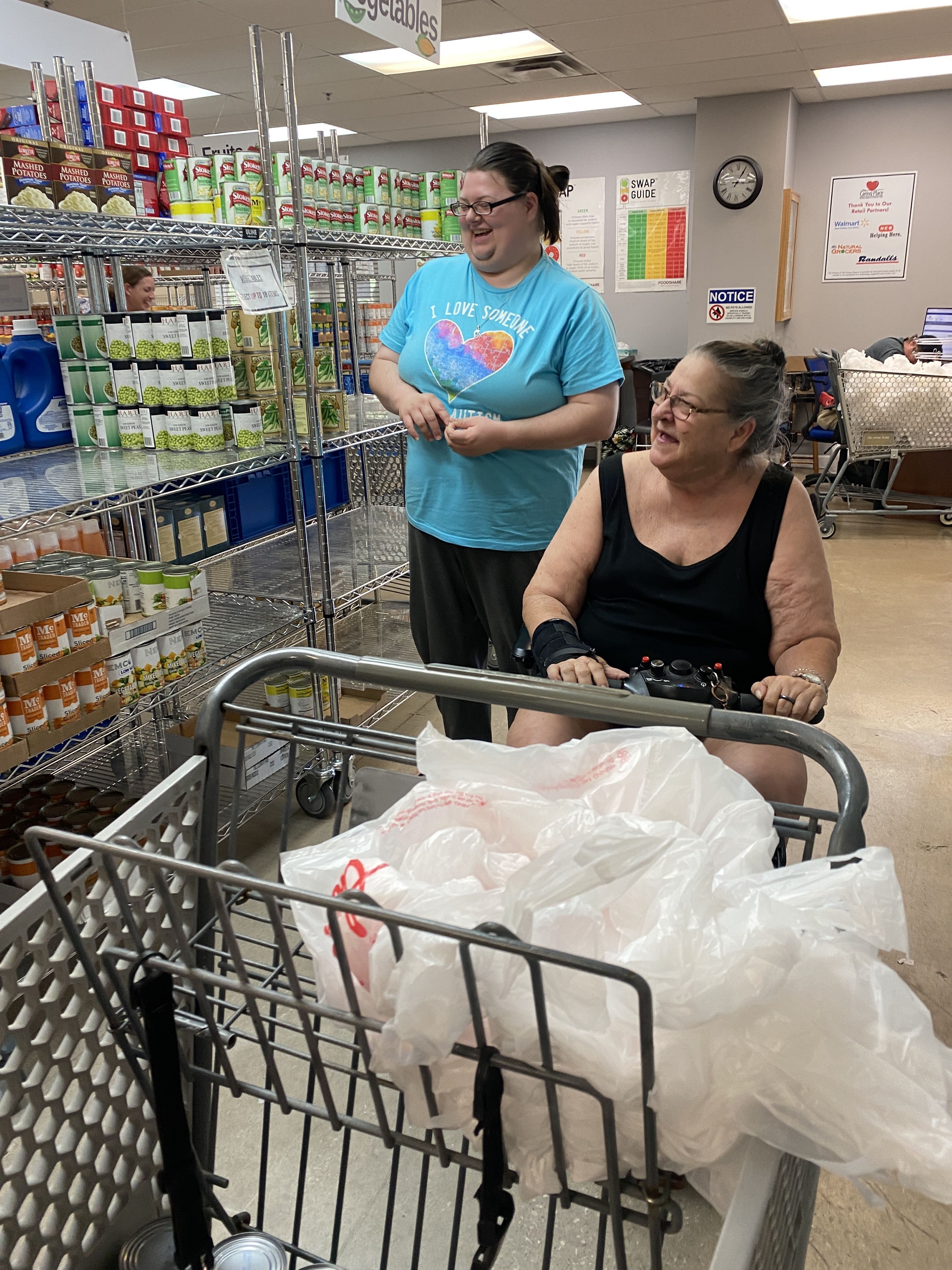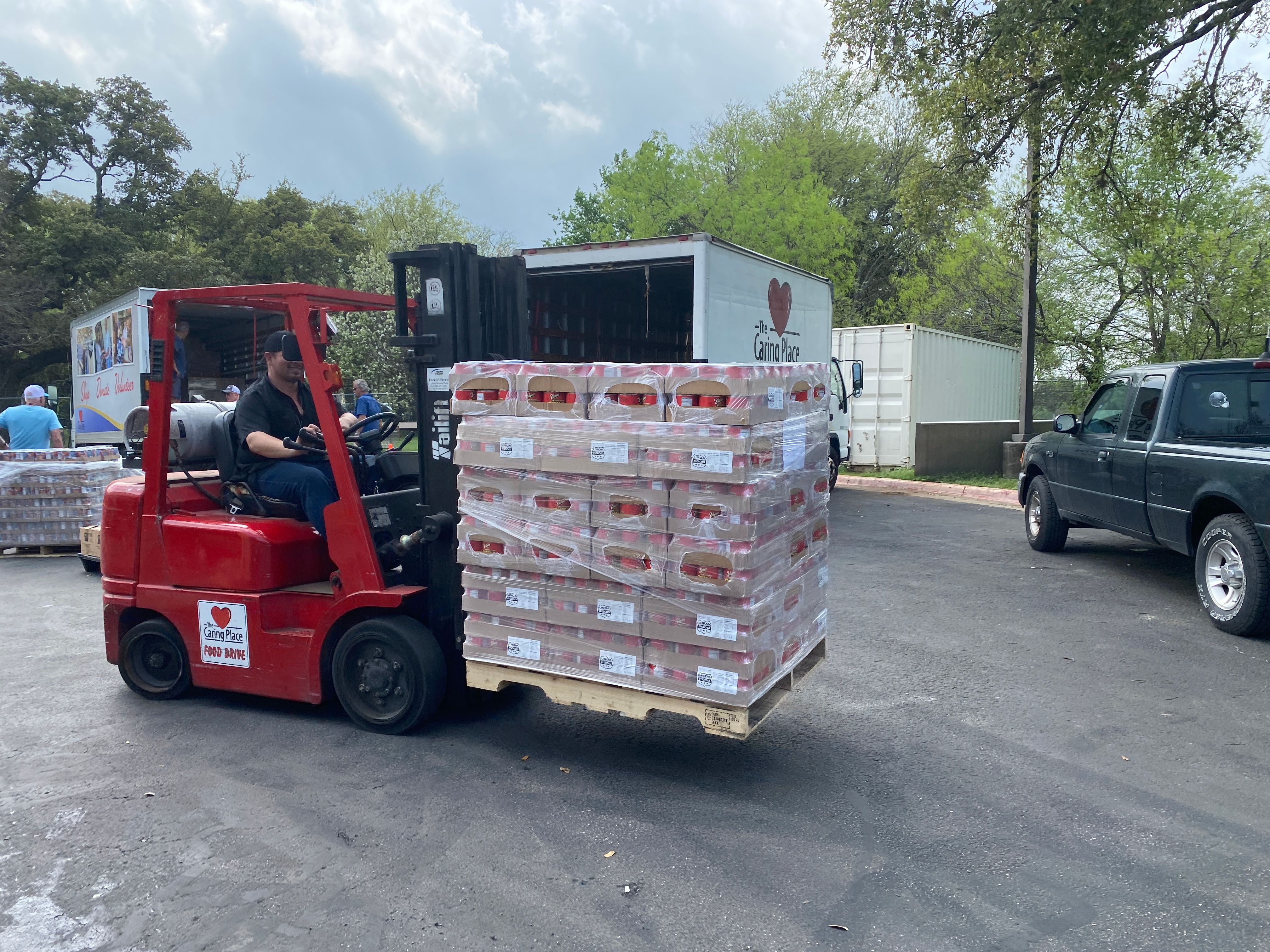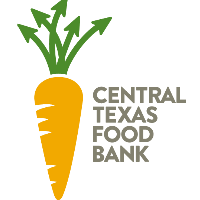
Sharon has a history with Georgetown. She moved here in 1975 to attend Southwestern. They moved around some after college but came back when her husband got a job at Dell in 2001. Sharon’s daughter passed away and she was left caring for a 3-year-old with autism. Her husband, a double amputee, passed away from renal failure. They briefly moved away while he was passing, but she returned to Georgetown. Sharon explained, “Georgetown has a sense of community and is a smaller town than where I lived before.” However, despite a welcome move, their savings, and 401k, were all used for her husband’s terminally ill condition and her own diagnosis of breast cancer. Bills remain, but she says she’s still working on paying them off. Now disabled, Sharon’s limited disability check keeps her from qualifying for enough food stamp assistance for her small family. Between that disability check and Social Security, she barely covers the rent for her grandson, niece, and herself. She added a roommate to help lessen the burden. And according to Sharon, using The Caring Place Food Pantry means she can still pay the electricity and phone bill. “Some weeks you get to the end and you just say, now what? Food is what we need, and it makes a big difference.”
Sharon remembered visiting The Caring Place Food Pantry before the pandemic. “It was kind of intimidating with the big wall up in the pantry. It felt like you were being institutionalized. Get in line,” she stated. Sharon explained the people were lovely, but the atmosphere was not like it was now. The previous Food Pantry layout meant neighbors waited longer to shop. There was often a line because only one household at a time had space to walk through. When describing the Food Pantry now, Sharon looked around the large, open Food Pantry and said, “This feels like I am going to the grocery store. It’s bigger aisles. You can see everything, and you can take your time. No one rushes me. It’s more comfortable. The fact that I can get my scooter in and around makes a big difference for me.” Sharon described many of the reasons The Caring Place made some improvements when our indoor Food Pantry model was closed during the pandemic. Knocking down some walls and expanding the space really made a difference. Sharon never anticipated needing to come to a Food Pantry, but appreciated that she felt very welcome in the bright, open-concept Food Pantry model. “I don’t hesitate to come here. I can choose what I want, and it just makes it a lot more pleasant time.” She continued, “My heart is easier when I come in the door. I am not embarrassed. I am not ashamed. I am welcome.”
Sharon’s grandson whom she took in at 3 is now 14, and she proudly talked about how healthy he eats. And he says, “Mimi, it’s because you feed me so good.” She said he loves avocado, cucumber, tomato and so many other fruits and vegetables. Sharon says the summers are harder because now she is responsible for three meals a day for a growing teenager, but was thankful she could get so much she needed from The Caring Place. During the pandemic, she utilized the drive-through Food Pantry. Sharon said what she missed most was the selection of the in-person Food Pantry for her family who has favorite foods like all families. However, she loves feeling integrated in this community. She shared the foods her family wouldn’t eat with her neighbors. “This is what neighbors are for. This is community.” Sharon includes The Caring Place in that community. She says people at The Caring Place call her by her name and that’s important to her. When Sharon talked about being called by her name she went on to say even the computers are better and know her name now. In years past, she’d hand someone her card and the card would have someone else’s data come up or alert staff it was time to renew. Sharon always marked the date on her card when she got it and tracked when she came, so she knew something was wrong with our database. “Today was nice, I came in and I gave him my card, and he gave it back.” There were no surprises because even our database received an upgrade within the last year.
Sharon’s next challenge is a dramatic rent increase of over $600 a month coming this January. She’s already making plans with her family to make a move within the area of Georgetown High School, a place her grandson is thriving. Sharon, like many other parents and grandparents in our community, makes sacrifices for family, but she notes, “That’s what you do! Sacrifices don’t feel like sacrifices at the time. I know I can’t move where I want to because he’s got to be in this school. It’s important.”
Thinking back to the past again, Sharon shared, “We had four deaths in a 9-month period, then the next month a breast cancer diagnosis, so we used quite a bit of money up that we had saved for this point in my life. Since I am disabled and can’t work, I’ll never get it back. Places like this make a big difference, and I am sure it does for a lot of people.”








